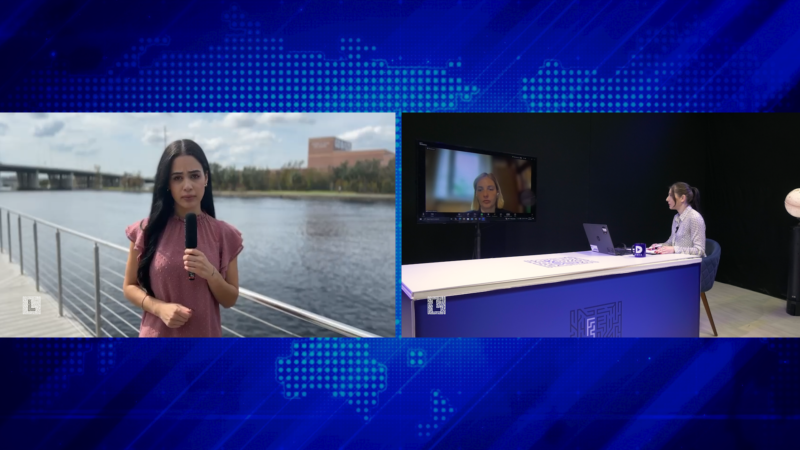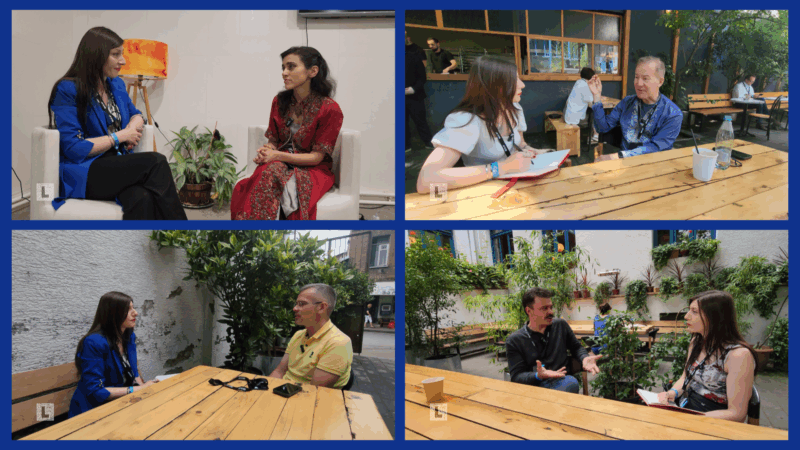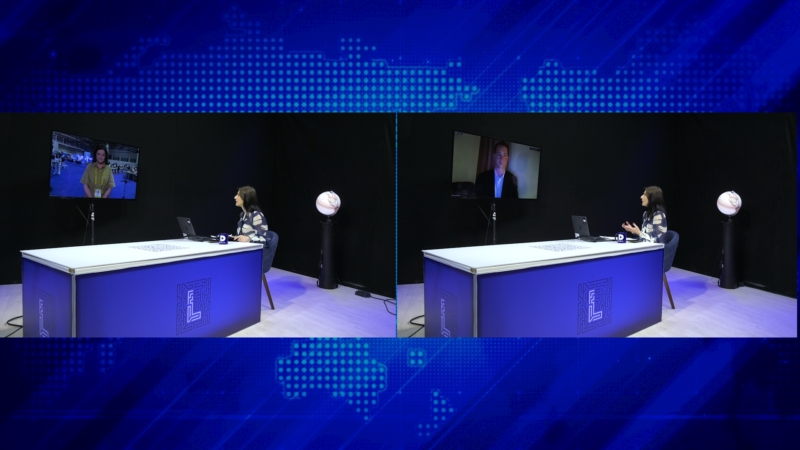The Serbian opposition is asking for help from the EU, and the Russians are leaving the country to save themselves from mobilization.
The coalition "Serbia against violence" took the battle against election violence to the European institutions, and that's why the hunger strike was worth it, says MP Marinika Tepic. In Labyrinth, she emotionally talks about the price the whole family pays for her fight against crime and corruption. We also discuss the Belgrade-Prishtina dialogue, for which she does not expect a solution while Aleksandar Vucic is in power, because she believes that he is one of the instigators of the problem and cannot be part of the solution. Regarding the issue of sanctions against Russia, Tepic says that Serbia has European aspirations and as such should align its foreign policy with EU’s.
The journalist and researcher, Vladislav Ivanets, who does not return to Russia to avoid mobilization, is also a guest in Labyrinth. He says that civil society does not support the invasion of Ukraine, and anyone who dares to say so risks many years in prison. Independent media works only from exile. Due to Putin's draconian laws that have been phased in since 2012 (the Foreign Agents Act), Ivanets says that anyone in Russia can be prosecuted. As for the upcoming elections, it is certain that Putin will win because anti-war candidates have been eliminated from the race. Regarding Putin's last interview, he believes that it did him no favors in front of the domestic public.
You Might also like
-
Georgia in post-election chaos – USA at pre-election crossroads
Analysis of the Georgia election and a Florida survey on American expectations.
Less than a week until the most important American election in modern history. For Labyrinth, colleague Jalyssa Dugrot from Florida talked to young people about their views and expectations of the presidential candidates.
Georgia, on the other hand, is back on its feet after the elections in which the ruling "Georgian Dream" won. The people, the opposition and the international public do not recognize the results. Hungarian Prime Minister Viktor Orbán is the only European leader who appeared in support of his Georgian colleagues. We talk to Ekaterine Basilaia - director of the Center for Media and Social Research of Georgia about the atmosphere in Tbilisi and the reactions after the elections.
Watch the full episode.
Post Views: 375 -
Analyses of conflict zones and experiences from war hotspots
A series of interviews about crisis areas and personal experiences of journalists and humanitarians - Sееma Jilani, Michael Bociurkiw, Adelin Pertisor and Giorgi Dolidze in this Labyrinth.
This week, Labyrinth in Tbilisi at one of the biggest journalism events - the ZEG Festival. We had the opportunity to talk to journalists from all over the world about the current situation in their countries. We present you a series of interviews about the countries that are currently in the global focus.
We spoke with one of the keynote speakers at the event, a doctor who has dedicated her life to treating children in the most vulnerable places in the world, Seema Jilani. We talked about the great humanitarian catastrophe unfolding before our eyes, the Gaza Strip, and how we can help people cut off from all help. Seema also shared her personal experience of what it feels like to treat her own child injured in an explosion in Beirut.
The war in Ukraine is still raging, and since the coming to power of US President Donald Trump, Russian attacks on the Ukrainian capital seem to have increased. Meanwhile, in the Middle East, Israel and Iran are fiercely attacking each other. We talk about the situation in Ukraine and the current hot spots in the Middle East with Atlantic Council analyst Michael Bociurkiw, who regularly analyzes for CNN and other global media.
At the event, we also had the opportunity to talk with our colleague Adelin Pertisor from the Romanian public service, who is one of the most experienced war reporters. He reported on wars in the Middle East, Africa, as well as the Balkan conflicts and had the opportunity to interview a large number of leaders, but also some notorious militants such as Željko Ražnjatović - Arkan. Of course, we also talked about the situation in Romania after the annulled elections when the Constitutional Court recognized Russian influence in the electoral process.
Since Georgia got a new pro-Russian President who imposed a series of undemocratic laws, Georgians have been protesting every day. Media freedom and civil society are under attack, and journalists and citizens are facing prison sentences. We talk to Georgian colleague Giorgi Dolidze about what is happening in his country.
Watch the full episode.
Post Views: 126 -
France with a challenge to form a Government - NATO with new Declarations
Reporting from Washington and Analysis from Paris
The largest military alliance marked the 75th anniversary of its existence with a Summit whose focus is the war on European soil. The leaders of the member states gathered in the American capital to confirm the commitment to help Ukraine. Some of them used the margins of the Summit for meetings related to bilateral issues. A meeting between the Macedonian and Greek Prime Ministers did not take place, and journalists behind the scenes say that there was no interest on the part of the major powers to discuss such issues within the framework of the Summit. From the press room in Washington, we include Romanian military reporter and senior political correspondent Cristina Cileacu. In addition to the fact that the Alliance confirmed the commitments to help Ukraine, Cileacu also informed us about the other agreed strategic determinations, such as declaring China a country enabling Russian aggression. We asked Chileaku tofollow up the meetings of the Macedonian Prime Minister.
From the French capital, on the other hand, we are talking with an advisor in the French Assembly on topics related to the great upheaval that occurred during the elections. Councilor Matthias Vasquez from the ranks of Macron's party talks about the mood of the voters and the actions of the parties that led to this turn. At the moment, the main challenge facing France is the election of a prime minister, which the winning coalition seems to be having difficulty electing. Vasquez is a good expert on the Macedonian and Balkan situations, given the fact that he was previously on missions in these countries, so we used this call to ask him for his opinion on the French proposal that was imposed after the Bulgarian veto announcements.
Watch the entire show.
Post Views: 3,244





